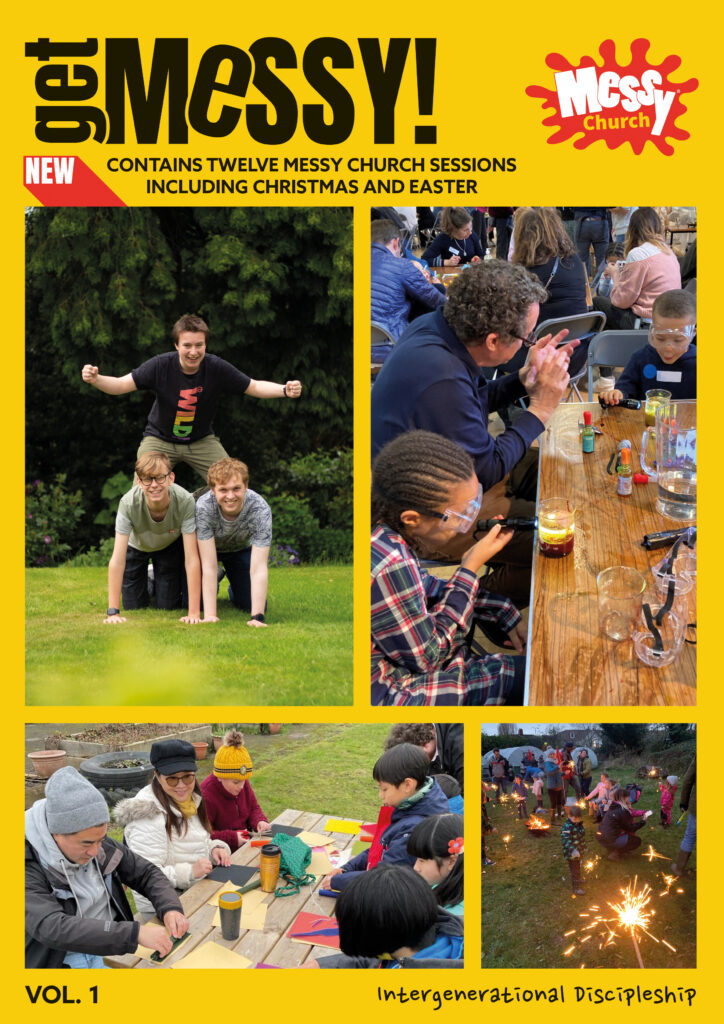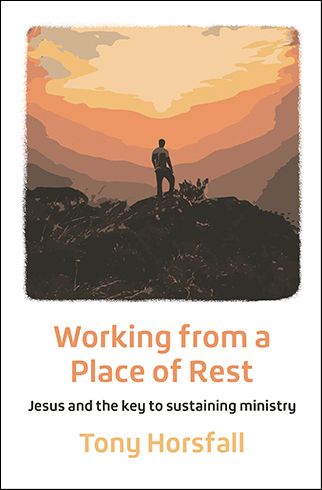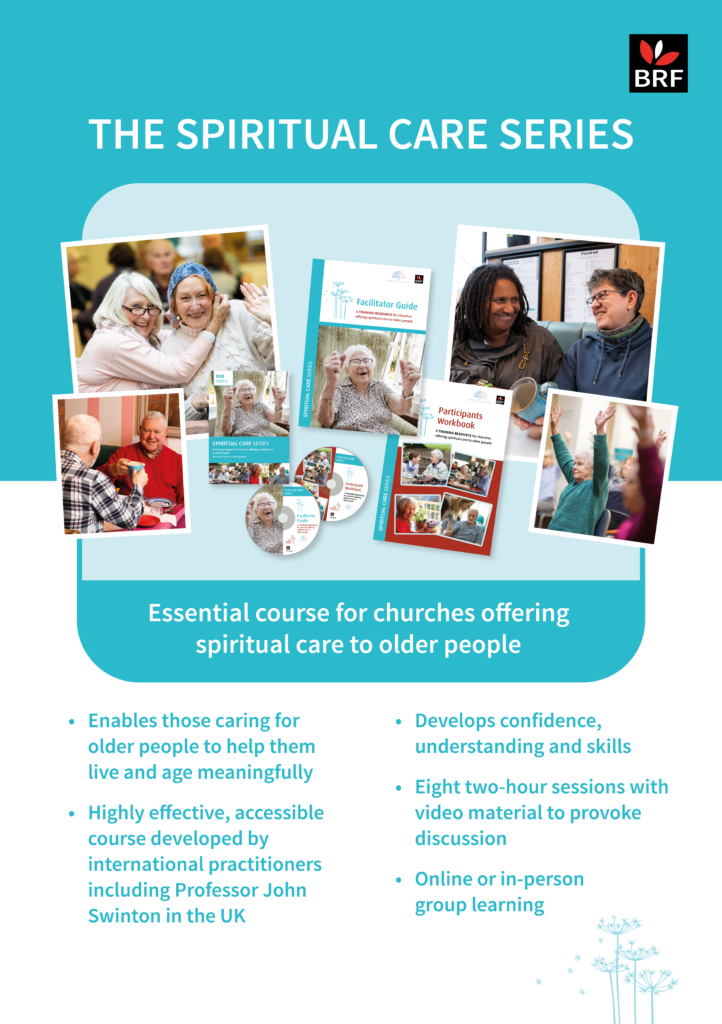Tim Lea, networks facilitator and animator for Fresh Expressions, shares some recent discoveries about the practice of sabbath in the second of our articles inspired by the publication of the new edition of Tony Horsfall’s classic BRF title, Working from a Place of Rest: Jesus and the key to sustaining ministry.
30 July 2023
Practising sabbath
‘Remember to observe the sabbath day by keeping it holy. You have six days each week for your ordinary work but the seventh day is a sabbath day of rest dedicated to the Lord your God. On that day no one in your household may do any work. This includes you, your sons and daughters, your male and female servants, your livestock, and any foreigners living among you. For in six days the Lord made the heavens, the earth, the sea, and everything in them; but on the seventh day he rested. That is why the Lord blessed the sabbath day and set it apart as holy.’
Exodus 20:8–11 (NLT)
Recently I have been troubled about how I do nothing or perhaps more accurately by my understanding of sabbath and even more importantly how I practise sabbath. In fact, it might be my understanding that is getting in the way for me!
‘It seemed that God was nudging us to start a journey.’
There was a social media post by a friend recently which led to a realisation that I was not the only one who was struggling. Four of us met and chatted and then were challenged to consider that it might not just be the four of us and that exploring this in community might be helpful. We used social media posts with sabbath quotes to see how people would react… They did, and a conversation with about 40 people flowed. It seemed that God was nudging us to start a journey.
What have we discovered so far?
- Giving oneself permission to practise sabbath seems to be important and we can be in a real battle with our ego.
- It is a journey for each one of us and so what sabbath might look like will be different for different people. This means, for instance, we are pretty sure it won’t all happen on the same day and at the same time for us, because of different work patterns, life and family circumstances, personality types and all sorts of other variables.
- Preparing for sabbath seems to be important. It is a bit like how we might get ready for a party or Christmas, emails done, food prepared, exploring with others what it might look like, for instance in a family.
- The word sabbath comes from two words in the Old Testament. The first is Shabbat which might be a familiar word to you. To Shabbat is to rest or cease from work. The second word is Nuakh – which is perhaps less well known – which means to be present with God.
‘It is a journey for each one of us and so what sabbath might look like will be different for different people.’
A new commitment
The Old Testament theologian Walter Brueggemann talks brilliantly about sabbath as an act of resistance and an alternative worldview to a consumer worldview of production, demand and commodification. He writes:
‘Sabbath, in the first instance, is not about worship. It is about work stoppage. It is about withdrawal from the anxiety system of Pharaoh, the refusal to let one’s life be defined by production and consumption and the endless pursuit of private well-being.’
Walter Brueggemann, Journey to the Common Good (Westminster John Knox Press, 2010), p. 26.
Perhaps the most enlightening insight to emerge from our conversations was that we are so very good at talking about the theory and theology of sabbath but poor about putting it into practice. We are not beating each other up over that, but we are committing to preparing and then giving sabbath a try. What about you?
Resources
If you want to know more about sabbath, the following might be of help to you, but don’t get sidetracked into talking and not trying it:
- The Sabbath by Abraham Joshua Heschel
- Sabbath as Resistance by Walter Brueggemann
- The Ruthless Elimination of Hurry by John Mark Comer
- The Bible, especially Genesis, Exodus and the gospels
This article also appears in the current issue of Get Messy!
Remember the sabbath
An edited extract from Working from a Place of Rest by Tony Horsfall
What does it mean to practise sabbath in the context of the 21st century? One person who has written extensively on the topic is the theologian Marva J. Dawn. It was her own discovery of the helpfulness of the sabbath amid her busy life as a teacher, educator and scholar that prompted her to major on this area of Christian formation.
‘One of the greatest gifts for my life as one who serves God is observing the sabbath… Learning to keep an entire day as a sabbath changed my life,’ she says. Dawn emphasises the positive nature of the sabbath, showing us the benefits of this ancient discipline for the contemporary world.
‘One of the greatest gifts for my life as one who serves God is observing the sabbath… Learning to keep an entire day as a sabbath changed my life.’
For those of us who have experienced only a negative sabbath, with endless prohibitions telling us what we couldn’t do, her writings provide a refreshing reminder of the delight that can be found in such a day.
The greatest danger in restoring sabbath to our lives is that we are led back into legalism and the kind of bondage that lays down rules and regulations about what we should or should not do. This is not my intention at all. It is really for individuals to work out for themselves how best to maintain a day of rest, and to know what will most effectively restore their souls, even if it has to be on a day other than Sunday. It is more about a principle than a specific day. It is a gift for us to enjoy, permission to slow down and adopt a different pace of life.
The point is that God has commanded us to set aside one day for rest and remembrance of all that he has done for us. Only when we acknowledge it as a direct command from God, rather than simply as ‘my day off’, will we develop the kind of inner conviction that enables us to break free of unhealthy patterns of living and working, and the stranglehold that our 24/7 society has on our thinking.
‘The greatest danger in restoring sabbath to our lives is that we are led back into legalism and the kind of bondage that lays down rules and regulations about what we should or should not do.’
Only when we see it as God’s gracious invitation to spend time with him will we be motivated enough to leave aside the many alternative demands on our time in order to be with the true lover of our souls.
We do well to remind ourselves of the special blessings that come when we re-establish sabbath as part of the pattern of our lives.
Extract from chapter 8: Remember the sabbath.

Tim Lea is networks facilitator and animator for Fresh Expressions, and is also a wanna be sabbath practitioner.

Get Messy! Volume 1
Tim’s article appears in the May-August issue of Get Messy! From September Get Messy! is published in an exciting new format.
Each issue contains twelve session outlines for Messy Churches, running through the year from September to August. Everything you need to run your Messy Church, including activity photos, mealtime cards, social action ideas and templates, all downloadable from the Messy Church website. With an introduction by Messy Church ministry team lead, Aike Kennett-Brown.

Working from a Place of Rest by Tony Horsfall
Exhaustion, burnout, tiredness, even breakdown… sadly, such conditions are all too common these days, not least among those involved in some kind of Christian ministry, whether full-time, part-time or voluntary.
In striving to do our utmost for God, we can easily forget that there were many times when Jesus himself was willing to rest, to do nothing except wait for the Spirit’s prompting, so that he demonstrated the vital principle of ‘working from a place of rest’.

The Spiritual Care Series
We have a new leaflet for our highly regarded Spiritual Care Series created to give people the confidence, understanding and skills to provide sensitive, effective spiritual support to older people.
